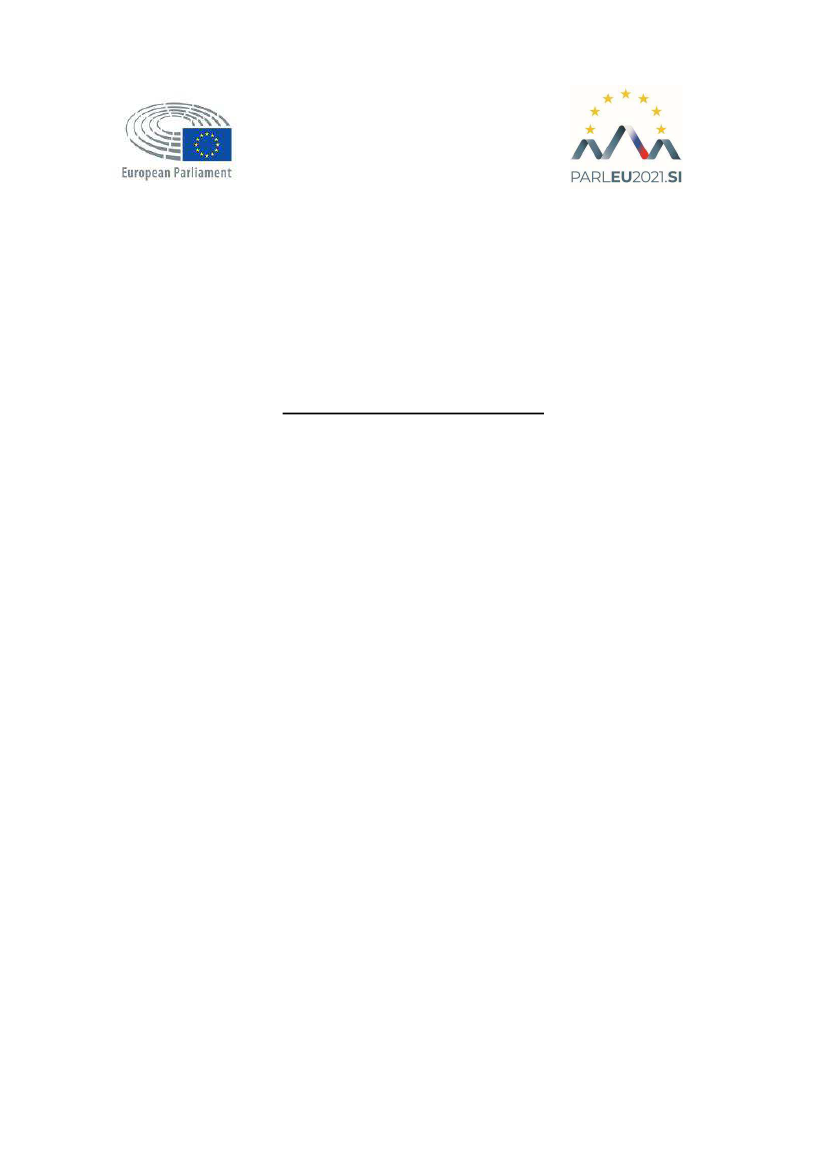
19
th
Inter-Parliamentary Conference
for the Common Foreign and Security Policy
and the Common Security and Defence Policy (CFSP/CSDP)
9 September 2021
via video conference
Joint statement by the Co-Chairs
Preliminary remarks
The 19
th
Inter-parliamentary Conference (IPC) for the CFSP/CSDP was held in the
context of the parliamentary dimension of the Slovenian Presidency of the EU Council
on 9 September 2021. Due to the ongoing COVID-19 pandemic, the event was held
for the third time via video conference. It was attended by parliamentarians from the
EU Member States and the European Parliament. Also taking part were
parliamentarians from EU candidate and potential candidate countries, and the
European member countries of NATO that are not EU members, namely Montenegro,
North Macedonia, Norway, Serbia, and the United Kingdom.
We, the co-chairs of the 19
th
IPC:
1. Note that recent international developments and challenges, including the
COVID-19 pandemic, have thoroughly challenged the world we live in and are
affecting key aspects of the EU’s Common Foreign and Security Policy (CFSP)
and Common Security and Defence Policy (CSDP). Stress that the EU needs
to act on the global stage with a common strategic culture to become an even
more important global player and to actively push for the strengthening of
multilateralism.
2. Consider the global outbreak of the COVID-19 pandemic as an accelerator of
changes in the international environment and recall the opportunity for the EU
to redefine its international agenda in order to address the new geopolitical
challenges.
3.
Stress the fundamental importance of the EU’s internal and
external resilience,
reinforcing cooperation with like-minded partners, developing new partnerships,
and strengthening the EU’s multilateral vision on a global scale. Underline the